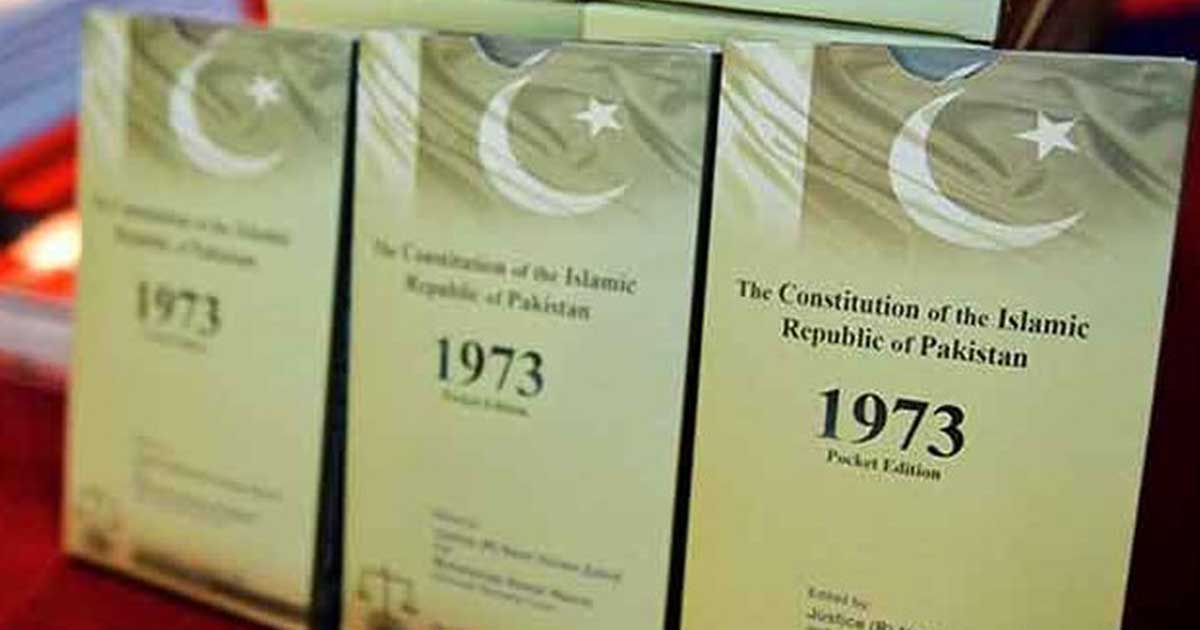Barrister Noman Cheema
The 26th Amendment to the Constitution of Pakistan marks a significant turning point in the interplay between the legislative and judiciary branches of government. This Amendment, which achieved passage with a two-thirds majority and received presidential assent, fundamentally alters the framework for judicial appointments, narrows the scope of judicial review in specific circumstances, and dictates that challenges to constitutional amendments be heard exclusively by a constitutional bench rather than the entire court. As such, it signals the beginning of what could become a contentious constitutional conflict, especially given that various factions within the judiciary and legal community may seek to contest these changes.
At its core, the 26th Amendment addresses persistent issues regarding judicial factions and the internal hierarchies that have historically characterized Pakistan’s judiciary. The previous system for appointing judges often resulted in the promotion of junior judges who were favored by influential judicial factions, thereby destabilizing judicial impartiality. This created a context in which these junior judges frequently supported decisions that aligned with the interests of senior justices, thereby lending considerable power to a select group within the judiciary.
In contrast, the 26th Amendment introduces a merit-based approach to judicial appointments, stipulating that the selection should come from the top three senior judges rather than automatically favoring the most senior judge. This new provision aims to mitigate the influence of entrenched factions, shifting the landscape towards greater parliamentary oversight in judicial matters. However, this Amendment also has the effect of restricting the chief justice’s authority to assemble a full court for constitutional challenges, limiting judicial flexibility in high-stakes legal scenarios.
This Amendment encapsulates the ongoing tension between the principle of parliamentary supremacy and the concept of judicial independence. The Constitution enables parliament to make amendments with the backing of a two-thirds majority, reflecting the populace’s democratic mandate. Conversely, the judiciary has historically regarded itself as the protector of constitutional integrity, ensuring that parliamentary actions do not erode the rule of law or disrupt the separation of powers that is vital to a functioning democracy.
Detractors of the 26th Amendment claim that it compromises judicial independence by limiting the judiciary’s control over its own appointments and its ability to form full benches as necessary. In contrast, proponents argue that it is a necessary measure designed to prevent the judiciary from evolving into a self-governing body, severed from democratic accountability and the interests of the citizenry, thereby promoting a more balanced representation in judicial appointments.
Should the constitutionality of the 26th Amendment be contested in court, it could place the chief justice—a product of the newly amended framework—in a precarious situation. This chief justice has sworn an oath to uphold the amended Constitution, including the provisions introduced by the 26th Amendment. If the judiciary were to nullify this Amendment, it would inherently question the legitimacy of the chief justice’s own appointment and the framework governing it.
The potential conflict of interest deepens when considering that the Amendment prescribes a three-member committee to determine whether a petition challenging it will be considered. If this committee includes judges whose appointments were directly influenced by the Amendment, it raises fundamental questions about impartiality and motivations, as they may feel obliged to uphold the Amendment in order to safeguard their positions.
Should the judiciary proceed to annul the 26th Amendment, the ramifications could be extensive and unpredictable. The explicit stipulations within the Amendment regarding judicial appointments and bench formation mean that overturning it would fundamentally challenge the authority of parliament and could provoke a severe political response from the state, possibly escalating to a declaration of a state of emergency. We have seen such scenarios unfold in Pakistan before, which could lead to significant political repercussions.
In the event of an emergency declaration, the democratic processes could be severely hindered, resulting in a deterioration of the rule of law and public faith in the stability of Pakistan’s political environment. Moreover, such actions could have a detrimental impact on Pakistan’s international standing, as external investors and foreign partners often interpret emergency measures and the suspension of constitutional provisions as signs of political volatility. This could lead to profound economic implications, complicating the nation’s ongoing pursuit of growth and stability.
This situation poses a critical need for balance between parliamentary authority and judicial independence. Judicial independence is paramount in a democracy, ensuring that the law is applied fairly and without undue political interference. Simultaneously, the supremacy of parliament embodies the collective will of the electorate and is essential for maintaining democratic legitimacy. Striking a balance between these two pillars of democracy is crucial for the stability and progress of Pakistan.
Currently, both branches face a call for restraint and thoughtful dialogue. The judiciary’s adherence to the amended constitution is vital for respecting its own oath while simultaneously being aware of the delicate balance of power. Likewise, parliament should aim to address legitimate concerns regarding judicial autonomy without triggering further disputes. Open channels of communication and collaboration will be essential to avoid an institutional standoff that could jeopardize Pakistan’s democratic system.
The 26th Amendment stands as a concerted effort to restore parliamentary oversight over judicial appointments while preventing judicial overreach. While it attempts to rectify certain imbalances within the institutional framework, it also introduces significant risks if met with judicial challenge. Ultimately, leaders within both the political and judicial realms of Pakistan must acknowledge that the stability of the nation relies heavily on a mutual respect for the roles of the respective governmental branches.
Should there be action taken to challenge the 26th Amendment, it must be approached with the utmost caution, mindful of the outcomes. Any move to overturn this Amendment possesses the potential to elicit a political backlash significant enough to jeopardize the Constitution itself. Pakistan has encountered such circumstances previously, and avoiding similar pitfalls is crucial to the preservation of democratic integrity and public trust.
In this pivotal moment, both parliament and the judiciary bear the responsibility of safeguarding the democratic framework of Pakistan. An escalation to emergency measures would undo years of democratic progress. Therefore, it is essential for the leaders of Pakistan to prioritize cooperation rather than confrontation, ensuring that both the principles of parliamentary supremacy and judicial independence are upheld in ways that fortify the nation’s democratic foundation.















